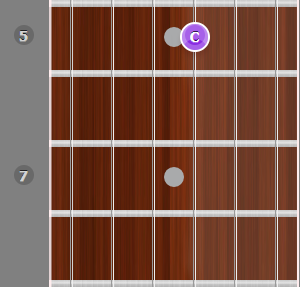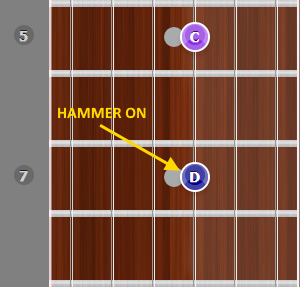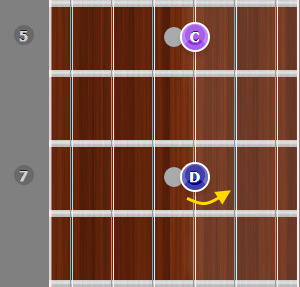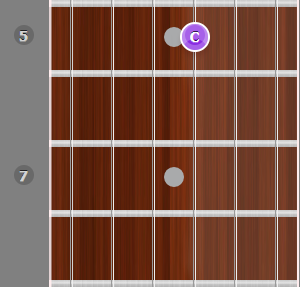Hammer Ons
Hammer-Ons are simply when you play a note, then "hammer on" another fret to sound another note without picking it.
It's a very easy to concept to learn, and like any other, it's very easy to overuse.
Simply fret any note, in this case the C on the 5th fret on the G string with your index finger.

Then using your ring finger, hammer onto the D on the 7th fret of the G string.

Here is an example of a hammer-on.
REMEMBER: You only pick the first note, not the hammer-on.
Pull Off
A pull-off is simply the opposite of the hammer-on. You fret 2 notes on the same string. Then pull off the higher fret.

When you pull off, you don't just lift your finger, you pull it to the side, which causes the second note to sound.

Here is what a pull-off sounds like.
Trill
A tril is simply a combination of a hammer-on followed by a pull-off, then repeat.
Here is an example of a trill.
Here is a faster trill
Here is an example of a trill one fret up, followed by 2 frets up, and 3 frets up.
Wrap Up
Hammer-ons, Pull-offs, and Trills are easy to play, and can help spice up your playing, especially lead playing.
They are very common. You will hear them in a lot of famous guitar solos.
Like everything else in guitar, take your time and make sure you play them cleanly.
If your pull-offs don't sound the second note strong, just work on the pull-off and make sure you're basically pulling the string, so that it makes a sound when it releases.